

Brazil's home security market is witnessing a revolution, and it's all thanks to AI technology. This isn't just an upgrade — it's a game-changer for safety standards across the board.
The recent surge in smart home investments throughout Brazil makes AI-powered security more relevant than ever. With rising concerns over safety, cutting-edge solutions are what everyone is talking about. But what's sparking that conversation?
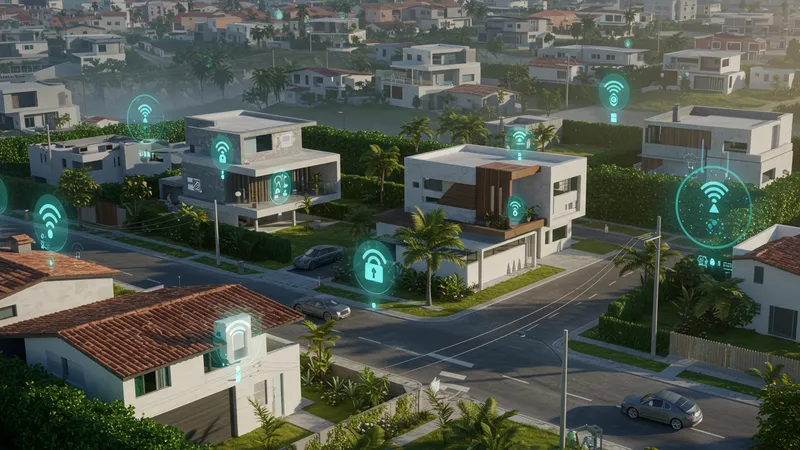
Home security in Brazil has always been a hot topic, but AI is flipping the script. In São Paulo alone, AI surveillance systems have reduced break-ins by a staggering 30% in just a year. But here's the real kicker — the AI doesn’t just detect threats, it predicts them!
This shift means the possibilities are endless, and traditional systems are rapidly becoming obsolete. You might think you know what your home security does, but think again. The predictive analytics of AI predict danger before it even happens. But that’s not even the wildest part…
What happens next shocked even the experts — the AI systems are not just about detection, they are redefining crime prevention itself. Unravel this story as we dive deeper into AI's enormous impact on crime prevention strategies in Brazil.
The integration of AI is changing not just how surveillance systems detect threats, but how they prevent them. Traditionally, systems were reactive, sounding alarms only when a breach was detected. Now, they are predictively proactive. AI analyzes patterns, recognizes anomalies, and triggers alerts before incidents even occur. This preemptive strike might just be the future of home security. But there’s one more twist...
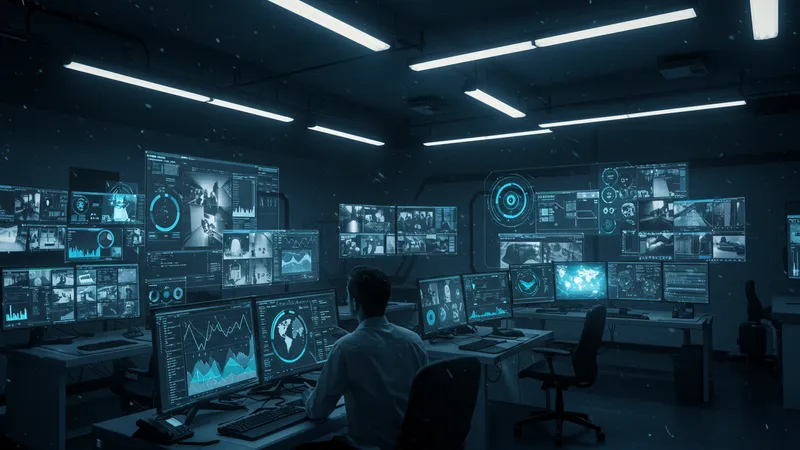
Data collected in real-time can be overwhelming without AI to process it. These intelligent systems have the capability to learn and evolve, using machine learning to improve their accuracy over time. What once took manual monitoring from a team of analysts can now be processed instantly by AI. Yet, the transformative power of this technology is still being unearthed. And what you read next might change how you see this forever.
While human-operated patrols and monitoring services are still common, AI introduces an efficiency that's unprecedented. Imagine a system that knows your neighborhood so well it recognizes the normal rhythm of the street and detects deviations instantly. That’s the level of personalization AI brings to the table. But as with all innovations, there’s a hidden complexity that alters conventional wisdom.
Experts originally viewed AI in security as supplementary, but now it’s seen as indispensable. This shift indicates a broader trend — security isn’t just about reacting to threats, but systematically preventing them. In Brazil, this shift signifies a deeper, structural change in crime prevention efforts. And the most astonishing changes are yet to come.
The capability of AI to analyze and interpret video feeds has transformed typical video surveillance into a responsive and intuitive tool. Unlike human operators who can get fatigued, AI operates tirelessly, keeping an unwavering eye on every home. With AI, there's not just the chance to notice a crime — there's the promise to foresee it.
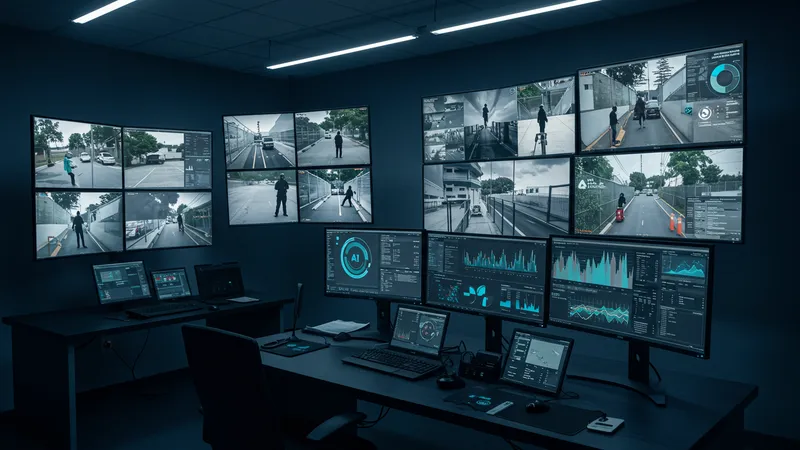
AI systems utilize computer vision, allowing them to understand and categorize actions accurately. For instance, a pattern of suspicious loitering or the sudden movement of someone scaling a fence can trigger automatic alerts. These real-time responses ensure the authorities are notified before crimes are committed, signaling a proactive evolution in crime prevention. But that’s not the only benefit you should expect.
With our data-centric society, privacy concerns inevitably arise. However, AI has the potential to anonymize and encrypt data, protecting privacy while still delivering enhanced security. In Brazil, where citizens are becoming increasingly privacy-conscious, this AI feature is a crucial selling point, offering assurances of both safety and privacy. This dual promise is pivotal as AI continues to reshape home security infrastructure.
With personalized surveillance, AI patterns each home’s specific patterns and responds uniquely to each premise's history and environment. The efficiencies gained are reshaping how the public perceives safety in the urban landscape of Brazil. But even with these advancements, a fundamental question remains — can AI balance security with civil liberties?
The influence of AI extends beyond individual homes, also impacting the strategies of local law enforcement. Before AI entered the fray, many departments were plagued by underreporting and delayed response times. Now, artificial intelligence provides timely intelligence that enhances decision-making.
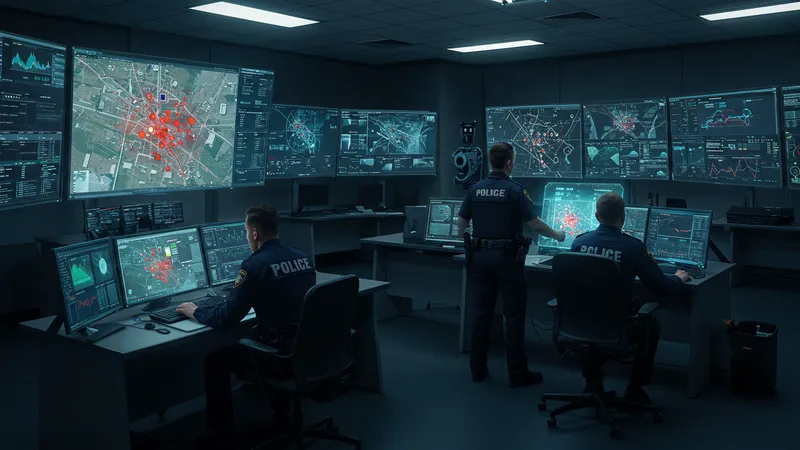
Using predictive analytics, AI systems assist law enforcement in anticipating potential hotspots for criminal activity. These insights help police allocate their resources more efficiently, ultimately boosting their presence in the areas that need it most, before an incident even occurs. But what happens when AI turns the tables, spotlighting irregularities that officers themselves might overlook?
There's an intriguing development in how law enforcement and residents interact due to AI enhancements. The Brazilian population, once passive in their home security roles, are becoming active participants in community safety. Residents are empowered, with AI offering actionable intelligence that fosters a community-led approach to crime prevention.
This transformation is not without its challenges. AI's capability to facilitate near-instantaneous data sharing between security devices and law enforcement raises questions on data ownership and transparency. It’s an uncomfortable dialogue, but one that must happen within this transformative journey. And what you discover next may challenge your understanding of the responsibility of securing data.
For all its benefits, AI-powered home security systems come with a formidable challenge — safeguarding user privacy. As Brazilian households equip themselves with these advanced systems, the need for a balance between security and personal privacy becomes apparent. With AI analyzing every aspect of a home environment, privacy advocates are raising flags about how data is collected and stored.
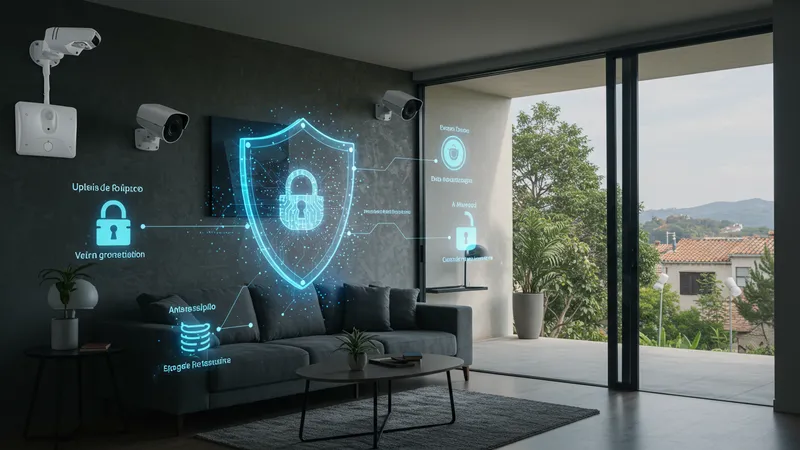
Pioneering AI technology aims to address these concerns by introducing advanced encryption methods and anonymization techniques, offering a layer of security over personal data. However, with ease of data collection comes the risk of breaches and misuse, making stringent regulatory frameworks essential. This safeguard is still a work in progress.
In response, companies have started to implement transparent data policies, ensuring homeowners are informed about what data is collected and how it's used. In Brazil, this awareness is becoming a critical requirement, instilling trust in the burgeoning AI security market. But beyond policies, the technology itself must evolve to offer more than just safety — it must assure privacy.
This privacy-security balancing act poses ethical questions that governments, companies, and citizens must navigate. How much privacy are we willing to compromise for safety? And who governs this balance? As we ponder these questions, we delve into what Brazilian authorities and tech companies are doing to establish guidelines that support both security and individual privacy rights.
The dynamics of AI in home security necessitate a robust regulatory framework. Brazil, like many other nations, faces regulatory hurdles as it attempts to control and steer the use of AI technology in private and public sectors. An overarching question looms — how can governments regulate effectively without stifling innovation?
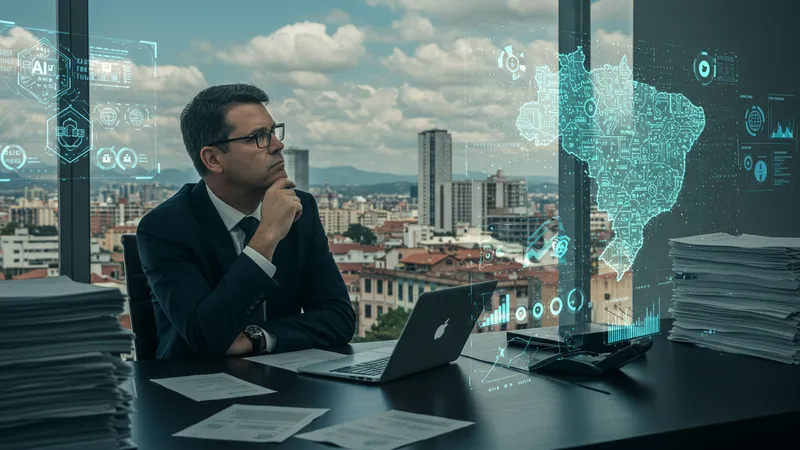
In addressing these challenges, Brazil is looking to international models for inspiration while crafting regulations that fit its unique socio-economic landscape. Ensuring AI’s remarkable accuracy without encroaching on personal freedoms requires nuance and a forward-thinking approach. Policymakers are tasked with creating laws that keep pace with rapid technological advancement.
Moreover, the technology itself provides an opportunity, as AI innovations can assist in regulatory compliance. Advanced AI tools can audit themselves and report discrepancies in real-time, ensuring adherence to regulations and cultivating trust. The self-regulating nature of AI might just be a key factor in achieving sustainable practices.
The road ahead is complex. Brazil’s stakeholders are poised at a crossroads, challenged to sculpt a future where AI and regulation coexist harmoniously. This delicate interplay requires bold strategies and cooperation between government, industry, and consumers alike. Next, we unravel the strategies that could lead to a harmonious AI-powered future for home security.
Despite the promise and potential of AI-enabled security systems, economic barriers remain. Brazil’s diverse economy presents a varied landscape for the adoption of these technologies. High costs associated with AI systems can limit accessibility, posing a significant hurdle for widespread implementation.
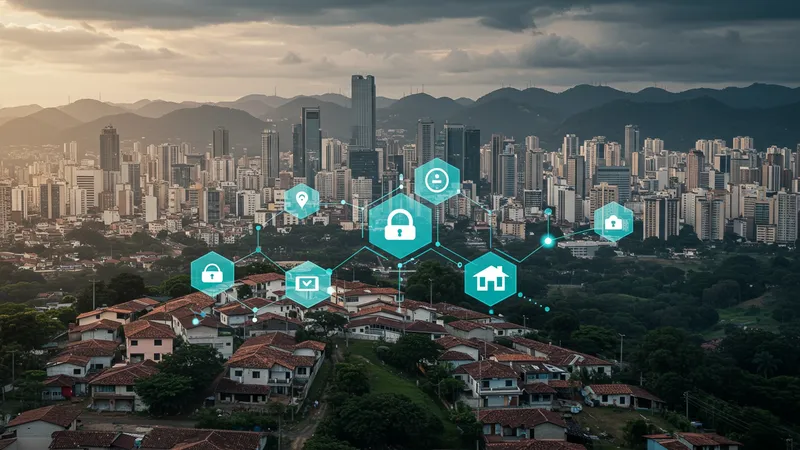
To tackle this, pioneering companies are developing scalable solutions that cater to various economic segments. By offering tiered pricing models, businesses ensure that even lower-income households can benefit from AI's superior security capabilities. This democratization of technology is crucial for aligning security improvements with all levels of society.
Further, government incentives and subsidies can spur AI adoption in regions that stand to gain the most. These incentives help level the playing field, ensuring every community, regardless of its economic status, can benefit from enhanced security features. This forward-thinking approach is vital for fostering equity in safety and protection.
However, universal accessibility remains a challenge as technology continues to advance at a rapid pace. As companies innovate, they must balance cost with functionality, offering affordable solutions without compromising on security. The journey toward inclusive AI in home security is ongoing, posing questions about the ultimate reach and implications for future security ecosystems.
AI in home security doesn't stand alone; rather, it thrives in synergy with human oversight. The integration of advanced technology with a human touch leads to a more robust security framework, where AI handles the mundane and humans provide contextual decision-making.

This collaboration focuses on the strengths of each — machines process data faster, while humans understand nuanced situations better. In Brazil, local security firms are crafting models that combine the efficiency of AI with the intuition of trained personnel, creating a formidable barrier against threats.
However, this transition isn’t devoid of challenges. Adequate training is required for personnel to manage these sophisticated AI systems, ensuring seamless operation. The learning curve may be steep, but the payoff is a smarter and more resilient security landscape.
The promise of AI-human collaboration is transforming perceptions about what constitutes effective security. By blending machine intelligence with human insight, Brazil’s security ecosystem stands at the forefront of a new era — one that optimally utilizes the strengths of both machine and human to create a safer, more secure environment.
As AI technology continues its rapid evolution, the future of home security in Brazil looks promising yet complex. The prospect of even smarter systems, capable of self-learning and adaptation, pushes the boundaries of what's conceivable in safeguarding homes.
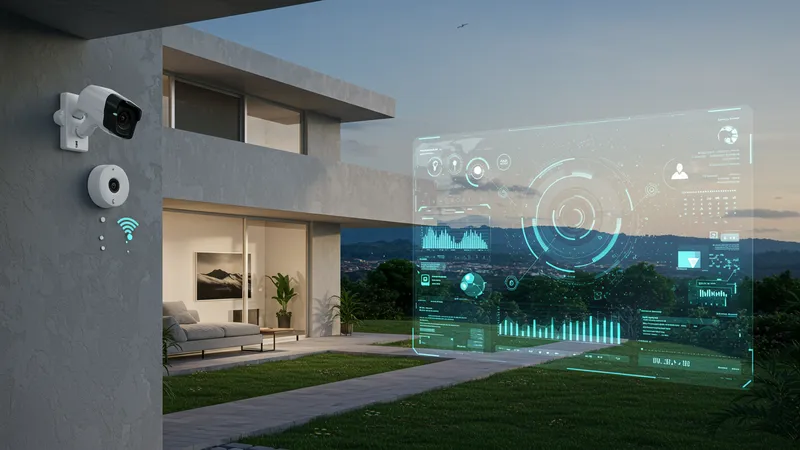
The next wave includes AI enhancements that not only predict and act but also learn from each interaction, creating tailored responses and heightened security protocols. This adaptability means that homes will not only be safe but intelligently tuned to the unique needs of their inhabitants.
Yet while the outlook is promising, the rapid pace presents a challenge — scalable integration into existing infrastructure without compromising on quality or efficiency. Companies are tasked with ensuring these advancements remain accessible and beneficial across diverse socioeconomic sectors.
In this fast-evolving landscape, continuous innovation is crucial. Brazil, with its dynamic approach towards AI and home security, is positioned to be a leader in this space. But sustaining this requires smart policy, ethical considerations, and community engagement — a complex puzzle that Brazil’s tech industry appears ready to solve.
As we wrap up our exploration into AI in home security within Brazil, it's clear that the technology isn't just surging ahead; it's reshaping how Brazilians view safety, privacy, and their own homes. The bold takeaway? AI brings an unprecedented level of personalization and intelligence to security systems, but demands a balance of ethics and access. Now, it's your turn — share this article with friends, bookmark it for future reference, and keep an eye on this transformative trend.